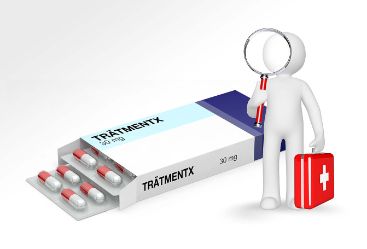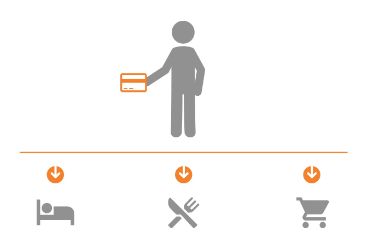Measures to curb costs in the health system
20 November 2025 | Comment(s) |
Luca Strebel

In order to curb the increase in health costs, Federal Councillor Elisabeth Baume-Schneider set up a round table involving all stakeholders. At its third meeting on 27 October 2025, representatives from the cantons, the medical profession, hospitals, health insurers, the pharmaceutical industry, patient organisations, academia and the Price Supervisor agreed on specific measures that should generate savings of at least CHF 303 million per year. Some of these measures directly affect health insurers.

Since November 2024, the expert group comprising representatives from all areas of the health sector has been developing proposals on how to curb rising health costs. Each sector was required to put forward measures that would also affect it. Health insurers were represented at the round table by prio.swiss as the industry association. Groupe Mutuel also played an active role in the process.
Twelve areas of action with proposals that can be implemented in the short and medium term have now been defined and are to be implemented.
The most important measures at a glance
- Enforcement of health technology assessments (HTA): Recommendations on medical services will be implemented more consistently, e.g. fewer unnecessary thyroid and vitamin B12 tests or certain shoulder operations only when clearly indicated. Potential savings: CHF 25 million/year.
- More efficient pricing models for medicines: Reimbursement claims for discount agreements will be simplified and digitised. Potential savings: CHF 20 million/year.
- Promotion of outpatient care: More treatments are to be carried out on an outpatient basis rather than in hospital. The "outpatient before inpatient" list is being expanded. Potential savings: CHF 5 million/year.
- Savings on the list of medical aids and appliances (LiMA/MiGeL): Rental prices for medical devices such as CPAP machines will be reduced, purchase options reviewed and prices updated regularly. Potential savings: CHF 7 million/year.
- Promotion of generics and biosimilars: Doctors and hospitals are increasingly turning to cheaper alternatives. Patients are being specifically informed in order to avoid increased co-payments.
- Promotion of "smarter medicine": Overuse and misuse of healthcare services will be reduced, e.g. through top five lists from professional associations and targeted communication.
- Laboratories: The flat-rate fee is reduced and fees for service are waived. Potential savings: CHF 85 million/year.
- Informing insured persons: Insured persons will be informed directly about savings opportunities, e.g. when purchasing original preparations. Potential savings: CHF 25 million/year.
- Reduction of paper invoices: Digital invoices will become standard, and paper invoices will incur additional costs for service providers in future. Potential savings: CHF 36 million/year.
- Greater cost awareness: More transparency and communication on cost developments and system knowledge.
- Administrative costs of insurers: Insurers commit to reducing their administrative costs by 2%. Potential savings: CHF 40 million/year.
- Passing on discounts to insureds: Discounts and reductions on medicines and medical devices must be passed on to insured persons in a consistent manner. Potential savings: CHF 60 million/year.

What does this mean for health insurers and Groupe Mutuel?

Some of the measures directly affect health insurers:
- Informing insured persons
As part of the second cost-containment package passed by Parliament this year, insurers will be given the opportunity to provide their insured persons with targeted information about more cost-effective services, alternative insurance models and prevention options (Art. 56a LAMal/KVG). This option is now set to come into force in July 2026, and as a first step, insurers will contact customers who have paid a larger co-payment by purchasing an original medication. They will be made aware that a significantly cheaper medication with the same active ingredient is available to treat the same illness, thereby promoting the use of generic medicines.
Further options for contacting insured persons, for example in relation to alternative insurance models or preventive measures, are also explicitly requested.
- Administrative costs of insurers
Health insurers undertake to reduce administrative costs by 2% of the administrative costs reported in 2025 by 2027 at the latest through efficiency measures and strategic decisions at the expense of the basic insurance (AOS/OKP). This corresponds to CHF 40 million across the industry.
Insurers also undertake to reduce shipping costs, particularly in their dealings with service providers and other stakeholders. Broad awareness-raising measures are also to be taken with regard to insured persons in order to promote digital communication.
- Reduction of paper invoices
From 1 July 2026, digital invoices will become the standard. A five-year transition period will be granted for paper invoices, during which the additional costs (around CHF 3 per paper invoice) will have to be paid by the service providers. The aim is to process invoices more efficiently and quickly and to relieve insured persons of unnecessary additional costs.
- Passing on discounts to insureds
When purchasing therapeutic products (medicines and medical devices), service providers (e.g. doctors, hospitals, pharmacists) can receive discounts and rebates. Measures are now to be taken to ensure that the obligation to pass on discounts is implemented more comprehensively than before. These include new or more comprehensive agreements with doctors, hospitals and pharmacies to regulate the passing on of discounts to insured persons and improve the quality of care.
What happens next?
The measures will be implemented from 2026 onwards. Many of the proposals can be implemented directly by the stakeholders without any changes to the law. Groupe Mutuel has been campaigning for some time for industry-wide cooperation to curb the rise in healthcare costs. It welcomes the work of the round table and its concrete measures, which in many respects already correspond to our strategic objectives.
However, it is equally clear that our efforts on behalf of our insured members and our work at the political level to achieve a sustainable reduction in healthcare costs must continue. Groupe Mutuel will therefore continue to actively support the implementation of the round table's findings and the political efforts to find more far-reaching solutions.





























































